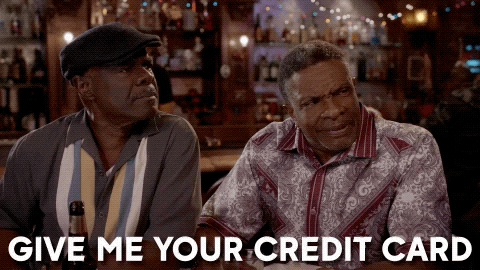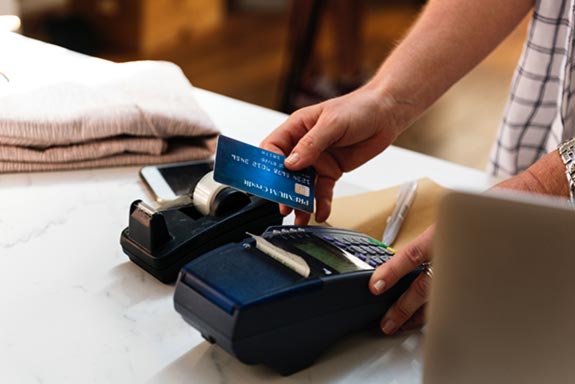6 Reasons to Reconsider Your Credit Card Choice
By the time you turn 18 you are going to have to contend with answering this one financial question – “should I get a credit card?”
Having a credit card in your wallet can give you some peace of mind. For example, if your refrigerator gives-out in the middle of the night, or if you wake up and your car won't start, and you don't have significant savings in the bank, then a credit card can help you pay for that immediate emergency. Some credit cards even help you build up rewards such as cash back, points toward airline travel miles, deep product discounts, or free stays at hotels.
A free trip to Hawaii is a pleasant perk to responsible credit card use. However, if you don't use your credit cards correctly, you can end up paying a lot more than you would have if you had paid in cash. Poor credit card discipline can cause a long list of problems such as high interest rate payments, excessive fees, credit score reductions, and reduced ability of getting approved for a mortgage, among other problems.
I have created a list of pros and cons to help guide you make an informed decision about credit card ownership.Pro #1: Credit Cards Help You Establish a Credit Score
If you want to take out a car loan or a home mortgage, you will need to have a decent credit first. One of the first methods that people have to build credit comes in the form of a credit card. When you use a credit card and make your payments on time, your credit history builds and your credit score goes up, as MarketWatch notes.
Con #1: Credit Cards Make It Easy To Stack Up Debt
As long as you haven't hit your credit limit at the store checkout, your card purchases will keep getting approved no matter your cashflow situation or how much money you may or may not have in the bank to pay back what you've charged. Without discipline, this can lead into financial problems quickly.
To justify the large charge, you might tell yourself that you will pay off the large purchase but then end up paying just the minimum amount owed. Paying just the minimum amount will lead to paying interest on what hasn’t yet been paid off, making your initial charges more expensive. If the situation continues uncontrolled it can end up hurting your credit score.

Pro #2: Credit Cards Offer Access to Lucrative Rewards
By using your credit card reward system intelligently, you can end up building miles toward free flights, hotel points for free stays, and cash-back payments for a percentage of the purchases that you make.
If you use credit cards for your normal expenses and pay them back monthly, this is a great way to accrue rewards without ending up paying interest, as the Wall Street Journal reports. Easily achieve this by sticking to a budget that allows you to pay those expenses as a part of your normal month’s budget.
Con #2: Credit Cards Can Cost You A Fortune in Interest
Some cards offer you a promotional period with zero interest on purchases and transfers, but after that period ends your interest rate can jump up to 20% or more – rates that add up over time – according to Forbes.
Your balance climbs even if you don't spend anything, and your minimum payments will barely cover the interest, leaving you in a vicious cycle. Avoid this by paying off your balance before the month ends and do not charge more than what you can pay off within a given month.

Pro #3: Credit Cards Can Offer Identity Protection
Thanks consumer protection law in the United States you have generally protections from fraud and identity theft related to credit card crimes. If your identity or card is stolen and a criminal completes purchases in your name you will not be liable, in most cases, to pay back the money owed due to the fraudulent charges. Because of this credit card issuers have a vested interest in making sure that your identity stays secure.
Credit card companies will often invest in identity protection and credit monitoring services for you. This protection allows you to stay abreast of any activity on your account - including activity done fraudulently. Signing up for a disciplined credit card purchase system can help put another barrier of protection between your authorized purchases and the financial resources you’ve worked hard to accrue.Con #3: Some Credit Cards Can End Up Costing You Added Fees
Some credit cards have an annual fee that can be as high as $100 or more. The company will "help" you by rolling that into your first bill, but that already limits your access to credit, and it's an expense that you may not need. If you're starting out with establishing a credit history, pick a card that has no annual fee -- even if it's a secured card. There's no reason to pay a fee when you don't need to. Also, some transactions will add a small fee if you pay with a credit card, so keep an eye out for that.
The post Pro’s and Con’s of Credit Cards appeared first on Michael's Insights


